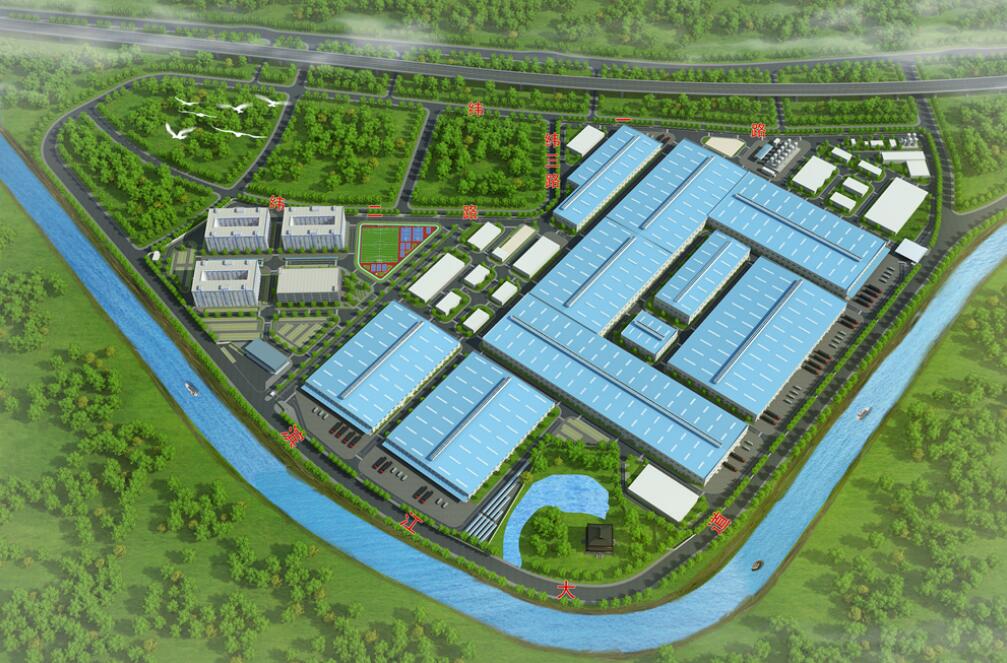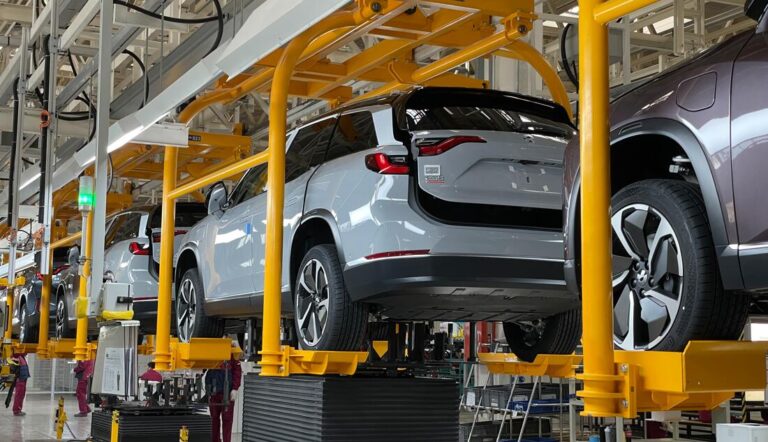BYD's battery base in Wenzhou has a planned investment of RMB 6.5 billion, with the first production line expected to start production in 2024.
(The blueprint of BYD's battery project in Wenzhou. Source: Wenzhou government)
BYD has started construction of a new power battery project in Wenzhou, eastern China's Zhejiang province, which was signed in late November last year.
The battery base is one of 29 major projects with a total investment of RMB 75.5 billion yuan ($10.8 billion) that the Wenzhou government held a groundbreaking ceremony for on February 21.
The BYD battery project is located in Qiaotou town, Yongjia county, Wenzhou, with a total investment of RMB 6.5 billion and a planned annual production capacity of 20 GWh, according to a WeChat article by the local government.
The project's annual sales are expected to reach RMB 16 billion after completion, providing more than 6,000 jobs, according to the article, which provides no further details.
On November 23, a press release from the Wenzhou city government said BYD plans to build a new power battery production base in the city with a planned annual capacity of 20 GWh, with the first production line expected to go into operation in 2024.
The power batteries planned for the production base will use one of the highly promising battery technologies currently available, the release said at the time, without revealing the specific technology.
As background, BYD's power batteries are currently based primarily on lithium iron phosphate (LFP) chemistry, and it also produces a small number of ternary lithium batteries.
In January, power battery installations in China were 16.1 GWh, down 0.3 percent year-on-year and down 55.4 percent from 36.1 GWh in December, according to data released earlier this month by the China Automotive Battery Innovation Alliance (CABIA).
CATL's installed base in January was 7.17 GWh, continuing to rank first in China's power battery installed base with a 44.41 percent share. BYD ranked second with a 34.12 percent share.
In the LFP market, BYD's installed base in January was 5.50 GWh, ranking first with 51.52 percent share, while CATL's installed base in the LFP market in January was 3.59 GWh, ranking second with 33.63 percent share.
This means that BYD retook CATL as the largest player in the LFP market in January after six months. In April 2022, BYD overtook CATL in the LFP market for the first time and for the second time in July 2022.
On November 22, local media LatePost reported that BYD plans to mass produce sodium-ion batteries in the second quarter of 2023, and they will be featured in the Qin EV, Dolphin and the new model Seagull.
BYD's power battery unit FinDreams is responsible for the development and mass production of the sodium-ion batteries, which are currently in the sample validation stage, according to the report.
However, BYD later said the report was untrue, but did not provide more details.
It's not clear if BYD's Wenzhou battery site is for the sodium-ion battery, though discussions about the new battery are growing in the past few months.
On February 23, battery maker Hina Battery unveiled three sodium-ion battery cell products and announced a partnership with Anhui Jianghuai Automobile Group Corp (JAC), which has made one of its models the first to carry sodium-ion batteries.
($1 = 6.9662 RMB)

